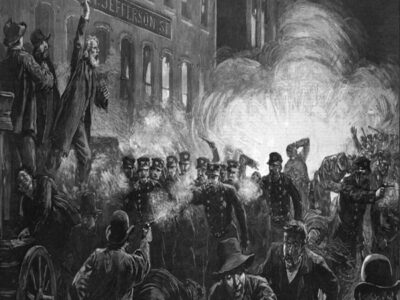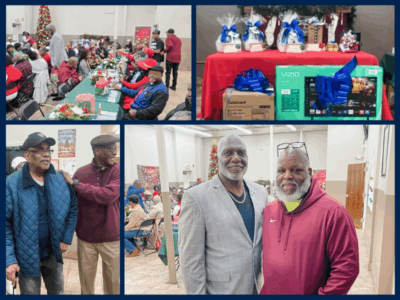By James C. Harrington
Labor Day during the COVID-19 pandemic looks quite different this time around than in years past. In an ironic way, this year’s holiday underlines the injustice, low pay, and poor conditions that workers face daily.
Over the years, we became so used to looking at Labor Day as the end-of-summer three-day weekend that we paid scant attention, if any, to the origins of Labor Day in corporate and police violence.
The path to Labor Day started on May 3, 1886, when Chicago police killed a union worker and wounded others during a peaceful demonstration, demanding an eight-hour workday. This led to a violent confrontation the next day, known as the Haymarket Affair or massacre.
Then followed an annual commemoration of the Haymarket Affair which created intense public pressure that, in 1894, resulted in adopting a federal holiday to pay tribute to American workers
In the late 1800s, the Industrial Revolution raced forward pell-mell, trampling on the workers on whom unbridled capitalism depended. People worked 12-hour days, seven-day weeks, just to put bread on the table. Children as young as 5 and 6-years-old toiled in mills, factories, and mines, earning a fraction of adult wages for the same work. Poor wages and unhealthy working conditions meant squalid living quarters, virtually no medical care, and lousy public education.
Workers, young and old alike, especially the very poor and recent immigrants, had to risk dangerous machinery and working conditions, without access to fresh air, sanitary facilities, and rest breaks. The wealth of those on top grew exponentially as did their exploitation and maltreatment of laborers.
Manufacturing increasingly supplanted agriculture as the major source of employment. “Old” America needed and welcomed immigrants, whose backs would shore up the factory walls, mine, and build railroads.
Labor unions, which first appeared in the late 18th century, grew more prominent and vocal. They began organizing strikes and rallies to protest poor conditions and compel employers to renegotiate hours and pay.
Most Americans do not appreciate how hard, long, and even bloody the struggle was – how many people went to jail, beaten, lost their jobs, and even died because the battle of corporations against them, who relied on the police as allies.
Ultimately, the labor movement greatly benefited America. Unions brought about the five-day workweek, overtime pay, minimum wage, workplace safeguards, paid vacations, sick leave, employer-provided health insurance, and other legal protections.
But, as the pandemic has hit hard, we see inequities in the workplace continue as before, and get worse. The loopholes corporate America has been to create still deny these benefits to far too many. The pandemic has brought another form of “violence” to these workers.
The government designates certain workers as “essential,” which means they have to work no matter the danger or else they lose their jobs without any attendant benefits. There’s no “bonus” for the risk, just the same pathetic low salaries for many. And reliance on undocumented workers continues unabated, all the while denying them any support during the pandemic. How can undocumented workers be both “essential” and “illegal”?
Companies with already huge financial resources were major beneficiaries of federal COVID assistance. Those resources did not “trickle down” to “essential workers.” The only thing that trickled down is COVID. Workers, especially those of color, have disproportionately borne the virus’ brunt, compared to white-collar workers because they have no choice as to their working conditions and are compelled by necessity to work, no matter the risk to them or their families.
Farmworkers and meatpackers, generally minority folks, are forced to labor with the commensurate rise in their infection rate. If they don’t work, then no unemployment compensation. This is as close to involuntary servitude as you can get.
This Labor Day should cause us to reflect on the inherent inequities for workers in our country – and get serious about doing something to rectify the injustice to workers that the pandemic has laid bare.
———-
Harrington is a human rights attorney and the retired founder of the Texas Civil Rights Project.







Leave a Reply